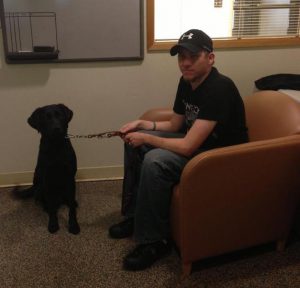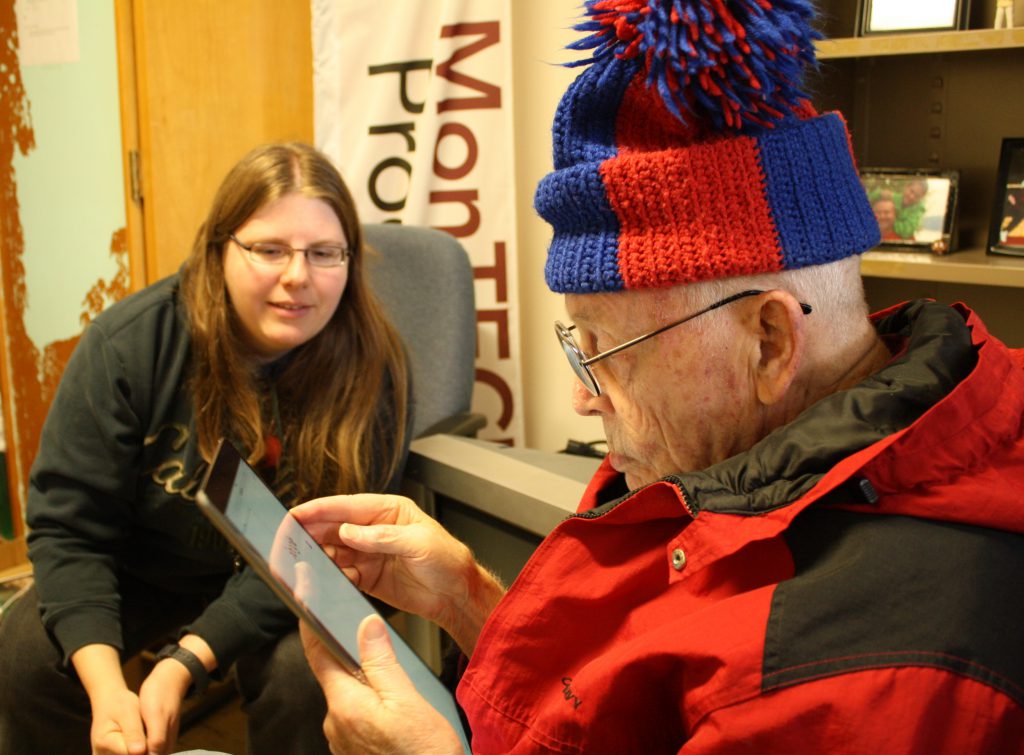A 69-year-old Latin percussionist came to technology consultant Ed Worrell to learn how to send emails. They worked together for the next several years, achieving one simple goal then moving on to the next. By age 72, the low-vision drummer was recording and editing his own music using GarageBand and VoiceOver. “If someone has an achievable goal, we go step by step to get there,” Worrell explains. “If you’re willing to learn, you can learn anything no matter your age.”
At 24, Worrell lost his vision to diabetic retinopathy in the space of about ten months. His father was a computer programmer, so learning technology geared toward those who are blind seemed second nature. “Technology was comfortable for me,” he says. “I had to learn how to operate a computer differently, but it wasn’t that big of a transition. Now I’m knee-deep in Apple accessibility. It’s always been a love and passion.”

If Worrell is knee-deep in technology, he has no plans to clamber out any time soon. Co-owner of OverHere Consulting in Great Falls, he has made it his life’s work to help people access and learn assistive technology. And teaching technology to those more advanced in years? “Really and truly, I don’t think there’s much of a difference,” he says. “You can make it as complex or as simple as the person needs. It’s just a matter of getting the right software into their hands.”
For 83-year-old Clint Grimes, the right technology at this point in his life is his 10.5-inch iPad Pro. “I use it for everything,” Grimes says. “I use it to read the news, read books. I draw on it. Read about world affairs.” Grimes uses a built-in magnifier to enlarge the print of his electronic newspapers. His advice for senior users? “Seek help,” he says. “Don’t sit there and go crazy. Find someone to help you!”
Which brings us to another important point: an older person learning technology may find it pretty darn easy to find support! Programs like MonTECH can help, but if there are grandkids, ask them how to do something. They are “digital natives,” growing up in a society permeated with technology. Today’s teens and tweens are fluent in the digital lingo of computers, Internet, and mobile devices.
This doesn’t mean you have to be fluent yourself. You don’t have to learn every in and out of your system. “You just have to know how to get where you want to go,” Worrell advises. “I worked with a veteran who just wanted to use his iPad to get on Facebook. It started with that little task, then he grew with the technology.” Eventually, he became proficient with an iPhone, texting, messaging, and video chatting. He even used social media to find old military buddies.
While technology provides opportunities to keep your mind sharp (with games and puzzles), monitor your health, and find information, the most vital benefit may be decreased isolation. “Aging can be isolating,” MonTECH Assistive Technology Specialist Julianna Whittaker says. “Technology is not going away. Use it to stay in touch and stay involved.” Whittaker also advises older users to be patient with the learning process. “Technology can be intimidating at first, but once you get your hands on it, you may find what you need from the technology is simpler than you think,” she explains. “You don’t need to know how to fly the whole plane. I don’t know how a plane flies, but I know it will get me from Point A to Point B.”

